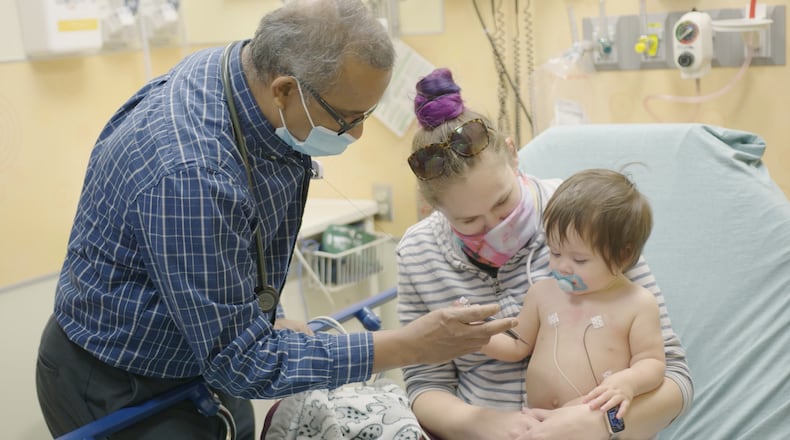“A vaccine stimulates the body’s immune system to develop antibodies against a specific infection, while monoclonal antibodies provide passive immunity,” said Dr. Michael Klatte, chief of infectious disease at Dayton Children’s. “Passive immunity is when antibodies to an infection are given to a person to help prevent or treat a disease. Passive immunity against an infection lasts for however long the antibodies remain in the body.”
This new shot, nirsevimab (trade name Beyfortus), provides an extra layer of defense at helping newborns and infants from getting severely sick or hospitalized from an RSV infection. It is a one-time injection providing passive immunity that will eventually fade after approximately five months.
Each year in the U.S., an estimated 58,000-80,000 children younger than five years are hospitalized due to RSV infection, according to the CDC, but researchers found nirsevimab reduces the risk by about 80%.
“To put this in some perspective, there are roughly 6,200 infants born in Montgomery County per year,” Klatte said. “If all these infants develop RSV infection, then about 100–200 of them will need to be hospitalized at Dayton Children’s Hospital. However, if all those infants get nirsevimab, then only 20-40 infants would end up getting admitted to the hospital.”
While nirsevimab is being used to prevent severe illness, other types of monoclonal antibodies are used for disease treatments, diagnosis, and research.
Monoclonal antibodies have been used to treat the following conditions, according to the Cleveland Clinic:
- Cancer.
- Organ transplant rejection.
- Inflammatory and autoimmune disorders, including allergies.
- Infections, including COVID-19.
- Osteoporosis, which is a disease that weakens your bones.
- Eye conditions.
- Migraines.
- High cholesterol.
- Nervous system disorders.
The U.S. Food and Drug Administration approved the first monoclonal antibody drug for humans in 1986, and the number of monoclonal antibody therapies that have been getting approval since then has been rising as doctors and researchers find new ways to use these types of drug therapies.
About the Author

